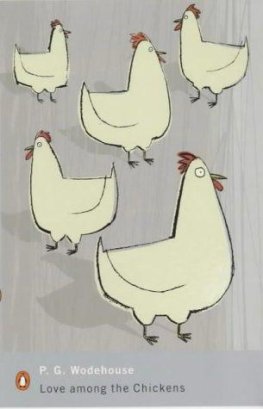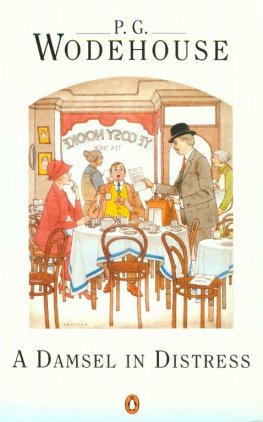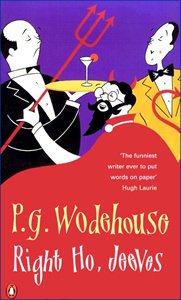Pelham Wodehouse - The Swoop! or How Clarence Saved England. A Tale of the Great Invasion
Here you can read online Pelham Wodehouse - The Swoop! or How Clarence Saved England. A Tale of the Great Invasion full text of the book (entire story) in english for free. Download pdf and epub, get meaning, cover and reviews about this ebook. genre: Prose / Humor. Description of the work, (preface) as well as reviews are available. Best literature library LitArk.com created for fans of good reading and offers a wide selection of genres:
Romance novel
Science fiction
Adventure
Detective
Science
History
Home and family
Prose
Art
Politics
Computer
Non-fiction
Religion
Business
Children
Humor
Choose a favorite category and find really read worthwhile books. Enjoy immersion in the world of imagination, feel the emotions of the characters or learn something new for yourself, make an fascinating discovery.

- Book:The Swoop! or How Clarence Saved England. A Tale of the Great Invasion
- Author:
- Genre:
- Rating:3 / 5
- Favourites:Add to favourites
- Your mark:
- 60
- 1
- 2
- 3
- 4
- 5
The Swoop! or How Clarence Saved England. A Tale of the Great Invasion: summary, description and annotation
We offer to read an annotation, description, summary or preface (depends on what the author of the book "The Swoop! or How Clarence Saved England. A Tale of the Great Invasion" wrote himself). If you haven't found the necessary information about the book — write in the comments, we will try to find it.
Pelham Wodehouse: author's other books
Who wrote The Swoop! or How Clarence Saved England. A Tale of the Great Invasion? Find out the surname, the name of the author of the book and a list of all author's works by series.
The Swoop! or How Clarence Saved England. A Tale of the Great Invasion — read online for free the complete book (whole text) full work
Below is the text of the book, divided by pages. System saving the place of the last page read, allows you to conveniently read the book "The Swoop! or How Clarence Saved England. A Tale of the Great Invasion" online for free, without having to search again every time where you left off. Put a bookmark, and you can go to the page where you finished reading at any time.
Font size:
Interval:
Bookmark:
THE SWOOP!
or
How Clarence Saved England
A Tale of the Great Invasion
by P. G. Wodehouse
1909
PREFACE
It may be thought by some that in the pages which follow I have painted in too lurid colours the horrors of a foreign invasion of England. Realism in art, it may be argued, can be carried too far. I prefer to think that the majority of my readers will acquit me of a desire to be unduly sensational. It is necessary that England should be roused to a sense of her peril, and only by setting down without flinching the probable results of an invasion can this be done. This story, I may mention, has been written and published purely from a feeling of patriotism and duty. Mr. Alston Rivers' sensitive soul will be jarred to its foundations if it is a financial success. So will mine. But in a time of national danger we feel that the risk must be taken. After all, at the worst, it is a small sacrifice to make for our country.
P. G. WODEHOUSE.
The Bomb-Proof Shelter, London, W.
Part One
Chapter 1
AN ENGLISH BOY'S HOME
August the First, 19
Clarence Chugwater looked around him with a frown, and gritted his teeth.
"Englandmy England!" he moaned.
Clarence was a sturdy lad of some fourteen summers. He was neatly, but not gaudily, dressed in a flat-brimmed hat, a coloured handkerchief, a flannel shirt, a bunch of ribbons, a haversack, football shorts, brown boots, a whistle, and a hockey-stick. He was, in fact, one of General Baden-Powell's Boy Scouts.
Scan him closely. Do not dismiss him with a passing glance; for you are looking at the Boy of Destiny, at Clarence MacAndrew Chugwater, who saved England.
To-day those features are familiar to all. Everyone has seen the Chugwater Column in Aldwych, the equestrian statue in Chugwater Road (formerly Piccadilly), and the picture-postcards in the stationers' windows. That bulging forehead, distended with useful information; that massive chin; those eyes, gleaming behind their spectacles; that tout ensemble; that je ne sais quoi.
In a word, Clarence!
He could do everything that the Boy Scout must learn to do. He could low like a bull. He could gurgle like a wood-pigeon. He could imitate the cry of the turnip in order to deceive rabbits. He could smile and whistle simultaneously in accordance with Rule 8 (and only those who have tried this know how difficult it is). He could spoor, fell trees, tell the character from the boot-sole, and fling the squaler. He did all these things well, but what he was really best at was flinging the squaler.
* * * * *Clarence, on this sultry August afternoon, was tensely occupied tracking the family cat across the dining-room carpet by its foot-prints. Glancing up for a moment, he caught sight of the other members of the family.
"England, my England!" he moaned.
It was indeed a sight to extract tears of blood from any Boy Scout. The table had been moved back against the wall, and in the cleared space Mr. Chugwater, whose duty it was to have set an example to his children, was playing diabolo. Beside him, engrossed in cup-and-ball, was his wife. Reggie Chugwater, the eldest son, the heir, the hope of the house, was reading the cricket news in an early edition of the evening paper. Horace, his brother, was playing pop-in-taw with his sister Grace and Grace's fiance, Ralph Peabody. Alice, the other Miss Chugwater, was mending a Badminton racquet.
Not a single member of that family was practising with the rifle, or drilling, or learning to make bandages.
Clarence groaned.
"If you can't play without snorting like that, my boy," said Mr. Chugwater, a little irritably, "you must find some other game. You made me jump just as I was going to beat my record."
"Talking of records," said Reggie, "Fry's on his way to his eighth successive century. If he goes on like this, Lancashire will win the championship."
"I thought he was playing for Somerset," said Horace.
"That was a fortnight ago. You ought to keep up to date in an important subject like cricket."
Once more Clarence snorted bitterly.
"I'm sure you ought not to be down on the floor, Clarence," said Mr. Chugwater anxiously. "It is so draughty, and you have evidently got a nasty cold. Must you lie on the floor?"
"I am spooring," said Clarence with simple dignity.
"But I'm sure you can spoor better sitting on a chair with a nice book."
"I think the kid's sickening for something," put in Horace critically. "He's deuced roopy. What's up, Clarry?"
"I was thinking," said Clarence, "of my countryof England."
"What's the matter with England?"
"She's all right," murmured Ralph Peabody.
"My fallen country!" sighed Clarence, a not unmanly tear bedewing the glasses of his spectacles. "My fallen, stricken country!"
"That kid," said Reggie, laying down his paper, "is talking right through his hat. My dear old son, are you aware that England has never been so strong all round as she is now? Do you ever read the papers? Don't you know that we've got the Ashes and the Golf Championship, and the Wibbley-wob Championship, and the Spiropole, Spillikins, Puff-Feather, and Animal Grab Championships? Has it come to your notice that our croquet pair beat America last Thursday by eight hoops? Did you happen to hear that we won the Hop-skip-and-jump at the last Olympic Games? You've been out in the woods, old sport."
Clarence's heart was too full for words. He rose in silence, and quitted the room.
"Got the pip or something!" said Reggie. "Rum kid! I say, Hirst's bowling well! Five for twenty-three so far!"
Clarence wandered moodily out of the house. The Chugwaters lived in a desirable villa residence, which Mr. Chugwater had built in Essex. It was a typical Englishman's Home. Its name was Nasturtium Villa.
As Clarence walked down the road, the excited voice of a newspaper-boy came to him. Presently the boy turned the corner, shouting, "Ker-lapse of Surrey! Sensational bowling at the Oval!"
He stopped on seeing Clarence.
"Paper, General?"
Clarence shook his head. Then he uttered a startled exclamation, for his eye had fallen on the poster.
It ran as follows:
SURREY DOING BADLY GERMAN ARMY LANDS IN ENGLAND
Chapter 2
THE INVADERS
Clarence flung the boy a halfpenny, tore a paper from his grasp, and scanned it eagerly. There was nothing to interest him in the body of the journal, but he found what he was looking for in the stop-press space. "Stop press news," said the paper. "Fry not out, 104. Surrey 147 for 8. A German army landed in Essex this afternoon. Loamshire Handicap: Spring Chicken, 1; Salome, 2; Yip-i-addy, 3. Seven ran."
Essex! Then at any moment the foe might be at their doors; more, inside their doors. With a passionate cry, Clarence tore back to the house.
He entered the dining-room with the speed of a highly-trained Marathon winner, just in time once more to prevent Mr. Chugwater lowering his record.
"The Germans!" shouted Clarence. "We are invaded!"
This time Mr. Chugwater was really annoyed.
"If I have told you once about your detestable habit of shouting in the house, Clarence, I have told you a hundred times. If you cannot be a Boy Scout quietly, you must stop being one altogether. I had got up to six that time."
"But, father"
"Silence! You will go to bed this minute; and I shall consider the question whether you are to have any supper. It will depend largely on your behaviour between now and then. Go!"
"But, father"
Clarence dropped the paper, shaken with emotion. Mr. Chugwater's sternness deepened visibly.
Font size:
Interval:
Bookmark:
Similar books «The Swoop! or How Clarence Saved England. A Tale of the Great Invasion»
Look at similar books to The Swoop! or How Clarence Saved England. A Tale of the Great Invasion. We have selected literature similar in name and meaning in the hope of providing readers with more options to find new, interesting, not yet read works.
Discussion, reviews of the book The Swoop! or How Clarence Saved England. A Tale of the Great Invasion and just readers' own opinions. Leave your comments, write what you think about the work, its meaning or the main characters. Specify what exactly you liked and what you didn't like, and why you think so.



